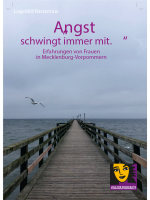
Like pinpricks: Racism in everyday life
Like pinpricks: Racism in everyday life
Everyday life is sometimes more, sometimes less routine. Everyday things are dealt with, everyday life is known, familiar and safe, perhaps even predictable, a daily monotony, a uniform routine. So, for most people, it is therefore predictable and provides structure and possibly stability. Something that can provide clarity and predictability in the fast pace of the world, perhaps even cause boredom at times, is unexciting, perhaps even monotonous. This is probably how many people would describe everyday life - and that is a privilege.
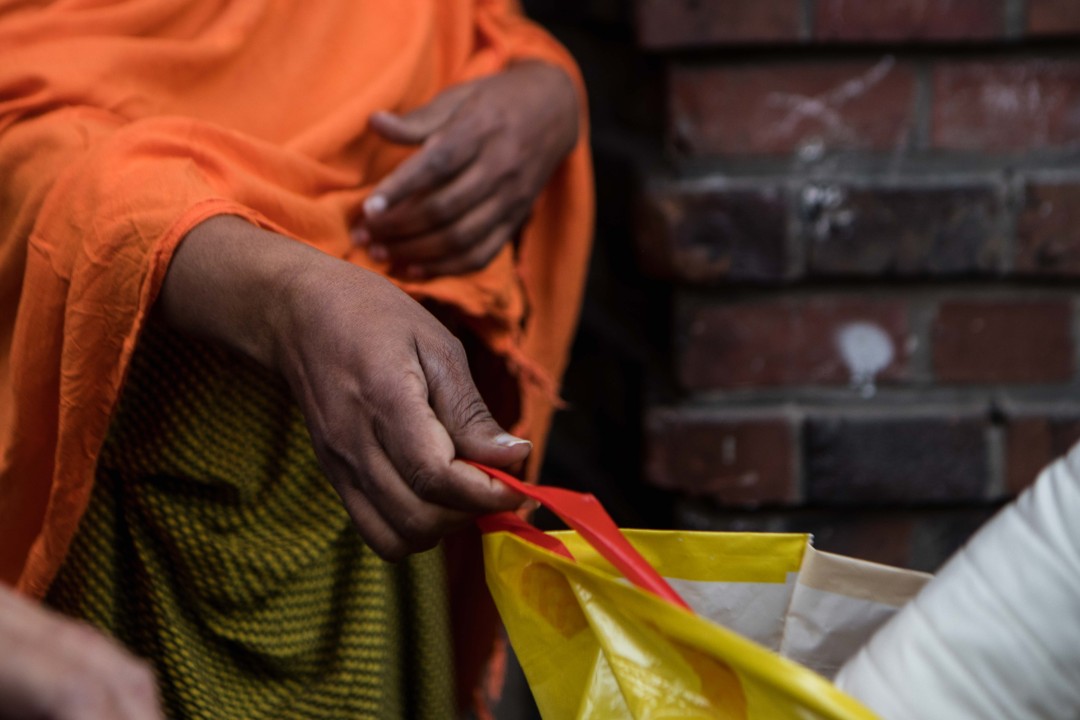
The women interviewed do not have this privilege. For them, everyday life consists of exhausting challenges. For them, there are numerous situations lurking in everyday life that make it unpredictable and threatening. From one moment to the next, they are torn out of their supposed everyday lives by racist comments and insults. The study shows that people with a (family) history of migration and flight have to deal with hostility and threats in their everyday lives in MV. The women interviewed report situations in which they are able to cope with everyday life without a care in the world and their routines are shaken from one moment to the next.
You walk through the street, snow everywhere, everything is beautiful, everyone is outside taking photos. You only see smiling faces, and then a man walks behind us and says: 'Look, the Kanaks' [.
People who produce racism use it to cause those affected to suffer permanent insecurity. This strategy is very powerful. The women interviewed clearly describe how they feel extremely restricted in their everyday lives as a result. They report numerous threat scenarios that deny them access to public spaces.
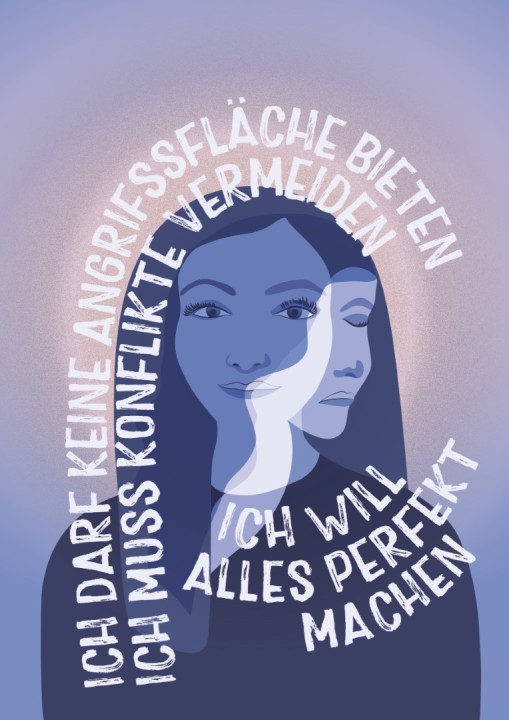
This fear is part of everyday life for them and is almost casually integrated into their daily planning: Where do I go grocery shopping? Which stop do I get off at? At which playground can my children play? Visiting playgrounds or shopping and other errands become a threat for them. People who produce racism use insults and threats, creating an environment of fear and danger. One mother reports a particularly dangerous incident:
It was a beautiful, sunny day. The children were playing football. Then a group of young people came who were older than my children. Suddenly they started threatening the little ones: 'You have to go back, you shitty foreigners. You have to go back to your homeland, you have no business here, we don't need you here. ' My children didn't tell me anything about this experience at first. The next day they went to play football again. Then it got even worse: they just wanted to play and were even chased by a car. They were almost run over! For an hour these young people drove after my children in a car, my children ran away and they kept following! When they got home, they were almost unconscious, they couldn't speak for fear.
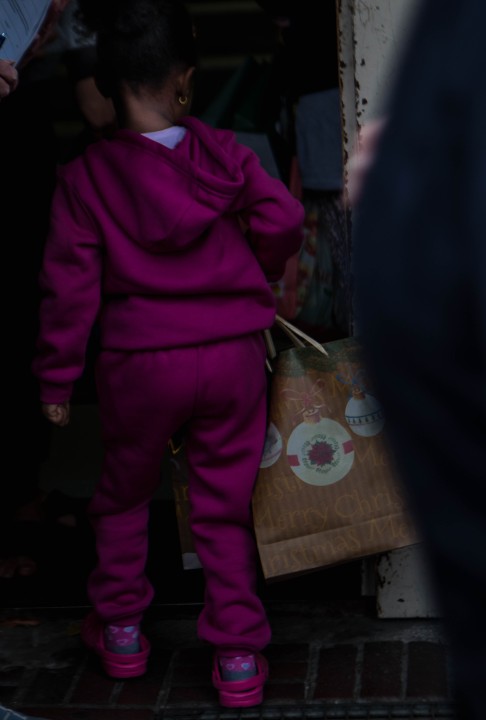
Other women from Mecklenburg-Western Pomerania who wear hijab report being laughed at or insulted on the street. The women state that they can only rarely participate in public life without being judged or insulted. They describe being shouted at, spat at and confronted with racist questions. They cannot move freely or carefree - everyday life becomes a gauntlet.
Social distance and experiences of exclusion lead to suffering. In addition to direct racist insults and threats, rejection is a constant companion of the women interviewed. They report that they are sometimes ignored when they ask for information or have a question. Many women report that everyday life in Mecklenburg-Western Pomerania is associated with being made "the other, the stranger". They experience that they do not belong to the majority and are excluded from the social environment, no matter how hard they try individually. Making friends or acquaintances becomes an enormous challenge for them. The permanent experiences of exclusion create a social distance. This distance reduces trust and perpetuates alienation.
The interviews show that this distance is difficult to overcome for those affected. The resulting effort lies solely on the shoulders of the women: they must constantly reveal, justify, explain and defend themselves. Their everyday lives are determined by finding ways and strategies for dealing with the situation. Be it the acceptance that they simply shouldn't belong, or an over-conformity so as not to stand out or cause offence.
After all the years I've lived here, my accent is still there, I can't get rid of it. People point this out to me over and over again. No matter how hard I try, I never fit in.
Everyday racism feels like small, unpredictable and unexpected pinpricks that permanently hurt - this metaphor was formulated by one of the interviewees. Microaggressions that torpedo the everyday lives of those affected: brief and everyday humiliations, in communication and behaviour, which either intentionally or unintentionally contain hostile, derogatory or negative racist slurs and insults and always run the risk of remaining undetected and being played down. The danger of these pinpricks lies in the fact that they are difficult to recognise and often remain invisible, not only for those carrying them out but also for those affected.


The limits of the (un)sayable: Language
The limits of the (un)sayable: Language
Migration processes are closely linked to speech and language. When people leave their home region permanently or for a certain period of time and build a new home across national borders, the way they speak changes.
The reasons and occasions for everyday linguistic practice are always varied. Biographical opportunities and decisions are inscribed in structures or moulded by social circumstances. Many people who make the move across national borders are challenged to organise and cope with their everyday lives in a new language. The participants in the study talk about different reasons for their own or their family's migration - each of which gives rise to individual language practices. However, the women are united in their endeavours to belong and be recognised as a person and as a member of society - also through language.
Multilingualism - a topic for the future (again)?
Most of the women interviewed grew up with different languages and are familiar with several languages and/or dialects. Children and young people in Mecklenburg-Western Pomerania whose parents or grandparents were not born in Germany usually grow up multilingual. In the stories told by women about their multilingual childhood and youth in Mecklenburg-Western Pomerania, a distinction between the language spoken in the family circle and in the public sphere becomes clear.
The women report ridicule, condescending looks, discrimination and violence that they experience when they speak German in public spaces. They get into the habit of only using German in public - out of self-protection and to protect their children and relatives. Many multilingual people endeavour in their everyday lives to improve their German language skills and present an appropriate image to the public, which includes particularly good German language skills.
So my feeling is, yes, I actually asked my mother the other day because I had the feeling that she was the typical over-conformist Polish woman here, which is not unusual for Poles in Germany. But, for example, she always spoke Polish with us, so that was something she didn't hide. There really are families or such like who have tried to only speak German. So we actually grew up bilingual. She spoke a lot of Polish with us and it was always important to her that we could speak it. But I had the feeling that it was always very important to my mother what kind of image we presented to the outside world.
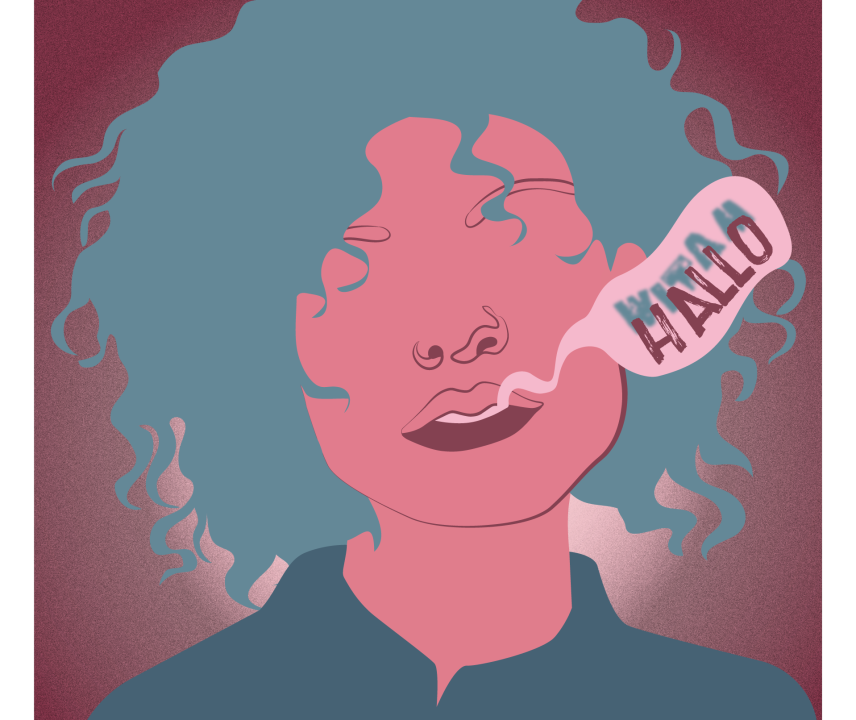
The women's stories often reflect their experiences of how their children deal with their own multilingualism in everyday life and how they negotiate this with their parents:
When I talk to other parents in German on the playground, I turn to the child and speak German too. And then, the worst, or not the worst, but the saddest thing was when I was in the changing room with my child at daycare and said something to him in Russian, and he then said to me very quietly in German: "Mum, the others don't understand you, speak German. " I thought that was a shame, exactly, that it came from him. And I know that my mother, for example, (...) told me that one time when she was playing with him, with the child, a woman said to her that she should speak German with the child.
Families endeavour to create a supposedly conformist image based on German expectations of normality, which is used to guide their own actions in public. Many women do not consider it desirable to constantly question the prevailing norms - not even in everyday working life. Some women decide against the possibility of using their mother tongue in a professional context.
Expressing and asserting themselves in Arabic, Dari, Farsi, Russian, Polish, Romanian, Hungarian or Greek in a professional context - the women describe the reactions to their multilingualism as complicated and conflictual. They report on situations in which they were racially insulted or discriminated against because they spoke in their mother tongue. To protect themselves in everyday working life, many women decide to use their mother tongue only in private.
The term secret language also came up more often when I was on the phone, talking on the phone in Hungarian. And yes. So she simply didn't speak to me on the same level. And the other temps, for example, they were German temps, they were allowed to cash up after just a few weeks. I worked there for two years and I was never allowed to cash up. Never really.
Many of the women in Mecklenburg-Western Pomerania share the experience of being at the mercy of their language of origin in everyday situations and being restricted in their own ability to act. Such episodes can lead to discrimination, exclusion and psychological distress, which can have far-reaching consequences if they are not addressed - a lack of discussion, psychosocial counselling, medical treatment if necessary.
Missing words at school - language practice and formal educational success
Several women report that teachers did not trust them to attend a grammar school due to language barriers during their primary school years. The non-issuance of grammar school recommendations has slowed down many girls. Some women talk with gratitude about individuals - often their mother or cousin - who supported their educational path even when the rest of their environment did not believe it was possible for them.
I think I really owe most of it to my mother. Just the fact that I went to grammar school, for example. Everyone was amazed at the time, yes, and for my mother, it was: "Of course, she's going to grammar school. " And when I told someone that in primary school, the parents laughed at me. My German language skills were not so good, to some extent. And maybe simply because they knew my mother or something, and her knowledge of German wasn't that good either, and then they were like: "She'll never manage that. " So just because you can't do something perfectly, especially language, you're often labelled as not having a very high IQ.
The women's stories show that school was not a suitable place for most of them to talk about their experiences of racism. In examining previous school experiences, in some passages our own childhood or young people's dealings with racism are renegotiated in retrospect:
For example, I didn't have any racist experiences at school that I'm aware of now. I have no idea whether I have simply, yes, erased things from my memory. That can be a good thing. But those kind of topics were simply not discussed at all. That wasn't good either. So there was never any talk about racism, but there was never any talk about my origins either. It was just completely ignored, and we pretended that I was part of it, but in a very strange way that wasn't good either. So that's what I have, it's an experience that I also had in my circle of migrant friends, who grew up in a similar way in Schwerin, at a similar age, that we sometimes just kept quiet about our identity, that some boys sometimes did so; that is, they gave themselves German names, and to this day I only speak German with my friends because we didn't speak Arabic to each other. And things like that. So it wasn't good either.
Students with a migration biography experience the lack of discussion of origin and belonging as a void. If there is a lack of respectful and interested interaction with teachers and classmates, it is difficult for affected students to accept offers of belonging, even if they are available.
In response to the (non-)thematisation of identity, belonging, racism or discrimination, children and young people with a (family) migration biography develop many different strategies. They even conceal their ethnic identity at school, give themselves "German names" and only use their shared foreign language among themselves in order to be like the others - and "not stand out".
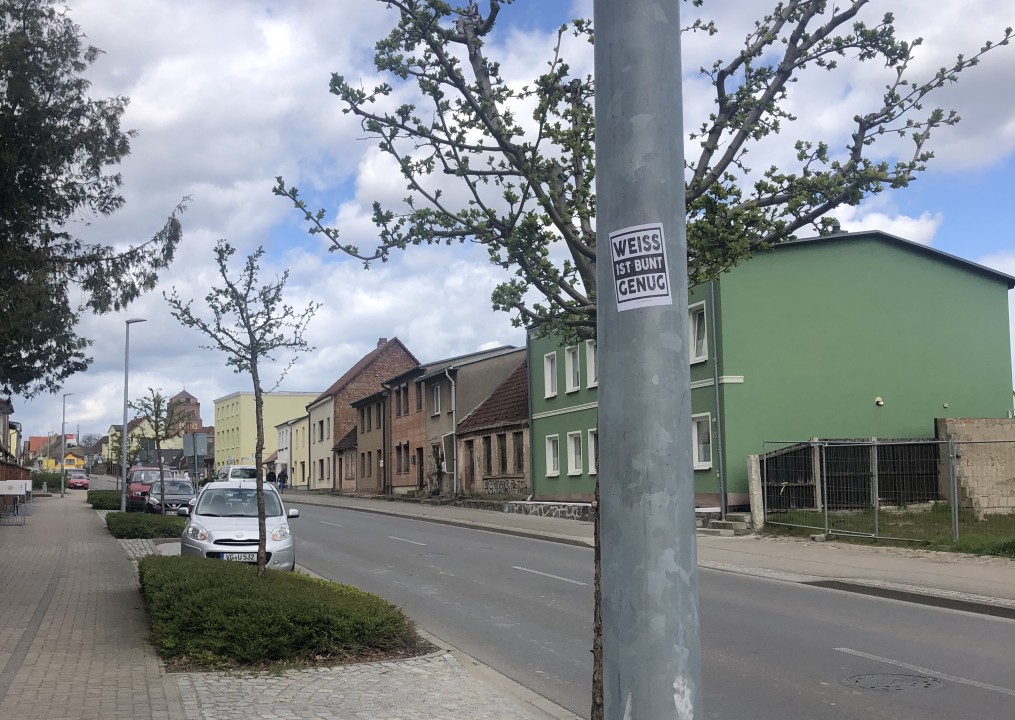
Yes, yes exactly, but I think by the third grade it had already developed that far; that's what happens, especially with children (...). At some point, it's always the case that once certain things have been worked through, things happen relatively quickly. That's how my mum described it too, so she was very silent for a long time, said almost nothing and then at some point she was like a waterfall from one day to the next, to this day.
Several women reported problems at school due to language deficits: they lacked the words to make friends, they remember difficulties with learning, some of which only disappeared years later. Many of the women who have completed an apprenticeship or gone to university report a conflict-ridden school life in which they were exposed to marginalisation, rejection and violence:
It was really different from secondary school to grammar school, so it was much harder. They didn't understand that. I still have problems with the German language as I hardly speak any German. I really don't have any friends at school. I really hardly talk, that's why, and in order to learn a language you have to talk a lot, which is why I still had a lot of problems at school. But I was also insulted several times, i.e. actual swear words, which you shouldn't actually say.
Among the "problems" mentioned here are racially motivated slurs and insults that were not given further attention or addressed educationally. Women also report that language deficits in German are generalised as mistakes or shortcomings. They report on school experiences in which they are denied normal everyday skills and even intellectual abilities.
In response to the (non-)thematisation of identity, belonging, racism or discrimination, children and young people with a (family) migration biography develop many different strategies. They even conceal their ethnic identity at school, give themselves "German names" and only use their shared foreign language among themselves in order to be like the others - and "not stand out".

Invisible walls: Institutional discrimination
Invisible walls: Institutional discrimination
The women's stories repeatedly depict unequal treatment in public offices and authorities. People with a (family) history of migration demonstrably find it more difficult to find accommodation or successfully apply for a job advertisement or training place, even in MV. This has to do not only with the fact that they encounter individuals who advocate discriminatory practices but also with the fact that they encounter administrative structures that enable or even promote discriminatory behaviour.
Women from Mecklenburg-Western Pomerania report that, as highly qualified workers, they are prepared to be hired as unskilled labour in order to obtain the status of gainful employment. Others have resources and take another course of study in MV - even after completing a degree programme and gaining initial professional expertise in their country of origin - often in a completely different subject area. The women not only experience a devaluation of their academic qualifications and professional experience in Germany, but their migration experiences lead to experiences of declassification, as they end up in weaker socio-economic positions compared to their living situation in their country of origin.
I am a highly educated woman. I've studied and I've passed three language exams, and yet I still have to wash dishes in a hotel.
When talking about discriminatory and marginalising structures that pervade our society, it is often difficult to name what people who are socially labelled as "different" and "foreign" experience or are confronted with. Even women with a migration background do not experience administrative actions as neutral. They are already confronted with multiple forms of discrimination in everyday life, which is likely to be all the more powerful within discriminatory structures. Contact with numerous different institutions and authorities is simply unavoidable for them, especially if there are children in their families.
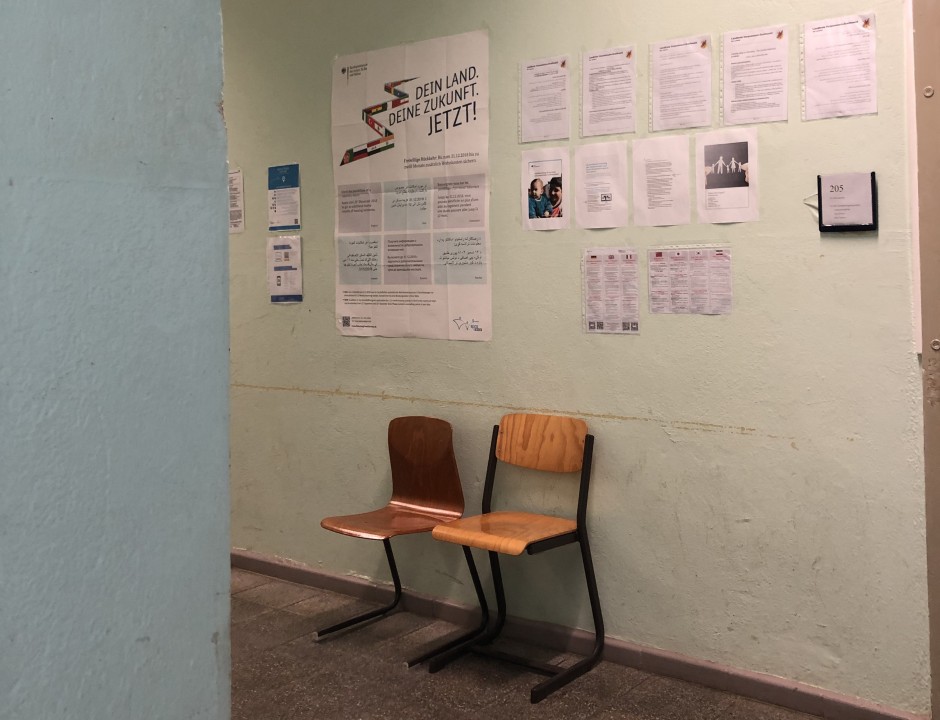
I actually felt comfortable here in the beginning. Although racism has always been an issue. But it got worse for me when I started wearing a headscarf. Then I experienced a lot of things; it became an everyday occurrence for me that people insulted me on the street. And now I'm having difficulties because I'm due to graduate in the summer. And so far I haven't found any apprenticeships because I always get rejections because of the headscarf. Or they say nothing. When I have a job interview, people look at me so strangely and make me feel insecure.
Women also report marginalisation in the housing market. They are confronted with racist statements, discrimination because of their surname or the fact that they are single parents. The racist dimension goes very far: on the one hand, women report that the fear of applying for a job is already very great and is also constantly confirmed. They are confronted with racist stereotypes regarding their (ascribed) origin or a lack of transparency in the allocation of housing. If other dimensions of discrimination then become relevant, such as the characteristic of being a single parent, finding accommodation becomes an impossible endeavour
Well, I'm a single parent, which means I'm looking for a flat for my son and myself. As a woman with this surname in Rostock, the largest city in the state, it is almost impossible. I have a job, I earn money. But I have no chance on the open market. [...] During telephone calls, for example, I have to give information about where my name comes from. I usually don't even make it to the viewing. Or I get an appointment for a viewing, and then suddenly the flat is already taken.
Particularly shocking results were obtained in the area of medical care. Affected women report massive experiences of marginalisation and discrimination. This starts with racist attributions. Women report that the medical staff denied that they could speak German simply because of their surname. As a result, some women were not fully involved in their medical care and there was a lack of consultation. And even in the vulnerable situation of illness and the resulting need for help, women are not protected from suffering racist threats:
When I was pregnant, I had to go to hospital several times. I was in a room with a German woman. Then a nurse came into the room, she must have just come back from vacation, I didn't know her yet. I was lying in bed with my headscarf on and she thought I didn't understand German. She turns to the German patient and says: 'Shall I rescue you from that and put you in another room? [...].' That was really bad.
Finally, the exclusion of immigrants without German citizenship from the right to vote and the associated lack of representation in political institutions is decisive for the stabilisation of discriminatory structures. A look at the municipal constitution of Mecklenburg-Western Pomerania shows that there are no explicit regulations for the representation of immigrants. The municipal code provides for the possibility of advisory boards and committees in an advisory capacity only. Institutional discrimination and institutional racism are difficult to recognise and even more difficult to name, especially for those affected. Discrimination is often justified by the misbehaviour of individuals, but at the same time, individuals only have limited opportunities to change discriminatory structures.
And then you realise that no matter what you do, no matter where you work, somehow it's not enough. And then, you always have to apply for something [...] Of course, I got benefits everywhere, you can apply for everything, but that also meant: I had to run to the club, I had to run to school, I had to show myself everywhere. And of course that makes you uncomfortable at some point, so it's kind of logical. But, yes, I would definitely say that it was very exhausting.
The episodes described illustrate the interconnectedness of discrimination on various levels and in the dynamics of the different attributions. These are unavoidable questions of coping with life that are addressed here: How do I get a training placement if I want to wear a headscarf? How do I get the right advice at the job centre? How can I promote greater sensitivity in dealing with skin colour at my children's daycare centre? How do I get an apartment as a single parent? How do my children obtain a high school recommendation? How will my voice be heard in my community?
